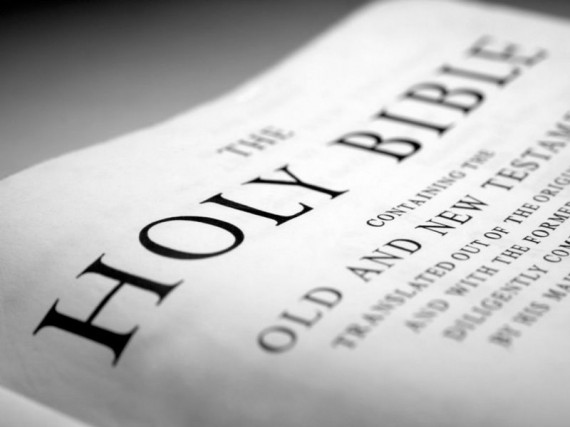
As with this entire series on Blogging through my Seminary notes, I begin by summarizing what I was taught in seminary. Here is what I was taught about the Inerrancy of Scripture.
What the Inerrancy of Scripture Means
The most basic understanding of the Inerrancy of Scripture is that Scripture has “no error” or is “without error.”
This means that the Bible is a record of things as they actually were, and a true account of those things about which it speaks.
A more detailed definition is as follows:
Inerrancy is the doctrine that the Bible teaches no error of any kind, whether doctrinal, ethical, historical, or scientific. All of the teachings are in perfect harmony with reality.
Why we Should Expect Inerrancy
If God is perfect, and if God was behind the writing of Scripture (see posts on inspiration), then it is logical to believe that God made sure the Bible is a perfect record of what He wanted human authors to write.
Also, as fallen human beings, we need a reliable and accurate book upon which to depend for sure and certain truth. If the Bible contained errors, we would have no such foundation on which to stand. God, knowing this need, would have provided it in the Bible.
Limitations of Inerrancy
First, the doctrine of inerrancy allows for figures of speech, proper use of genre, and other literary conventions that were in use at the time the Bible was written.
Second, the Bible can contain false statements, but only when the Bible is accurately recording a lie or falsehood spoken by Satan, a false prophet, or some other being.
Third, inerrancy does not demand proper grammar, identical wording in parallel passages, the proper chronological ordering of events, exact quoting of Old Testament verses, or the use of modern scientific language.
Finally, where there do seem to be errors in regard to historical or scientific facts, there may be ways in which these seeming contradictions can be resolved that science, archaeology, or reason have not yet discovered.
What do you Think?
I will actually have one or two posts from my seminary class notes which present some good information. After that, I will raise some questions of my own about what I was taught.
Until then, what do you think of Inerrancy? Do you have doubts or issues with anything stated above? Why or why not? Is there something you would like to add to further defend, explain, or clarify the doctrine of Inerrancy?
Feel free to include links to other websites and blogs!




In my opinion, the sense in which the word inerrancy is used places a construct on the Bible that doesn’t quite work, even given the “limitations” you list.
When we want the Bible to be perfect, inerrant, the very words of God in every detail we tend to make an idol of it, like the bronze snake. God wants us to worship Him, not a bronze snake, not tablets Moses brought down from the mountain and not the Bible. Jesus is the Word. The Bible is one method God uses to communicate with us.
The Dead Sea scrolls are more ancient than the autographs of the New Testament, yet we assume that those autographs no longer exist. Even if they do, I doubt they will ever come to light, because we, like the Israelites of old did with the bronze snake, would probably end up making idols of them.
Great points about the original manuscripts. Can you imagine the shrine that they would be placed in, and the tourist trap it would become?
I had a conversation about this with my newly ordained pastor friend. When I suggested that the books we use as our Bible may contain errors, he went white. I pointed out that the verse numbers and cross references were not in the originals, and that Catholic and reformed Bibles are different. His answer was that the reformed scriptures are correct, and that if I thought the scriptures contained errors, I thought God was in error; God protects the scriptures.
But what about the fifteen hundred years when the Catholic Bible was the only Western version? In addition, why did the Israelites lose the scriptures in the actual temple itself? How does that relate to God’s protection of the scriptures? He had no answer. He seemed afraid.
It seems obvious to me that man has had an impact on what’s been passed down. It’s inconceivable that a pastor can accept headings, verse numbers, cross references and differing translations as acceptable, yet not acknowledge human interference. I’m not afraid of offending God because I want to know what he said to us, and the plausibility of inaccuracy being introduced is undeniable. Jesus told us that he had many things to tell his disciples, but they were not ready to hear them, and that the Counselling Spirit, the Comforter would come and guide us in spiritual things. I turn to him in prayer for guidance
I think the Bible contains absolute truth, but it’s likely that God has spoken to us more and that vital parts of his message may have been eviscerated over the years. That would explain the passivity of the “church.” We are no threat to Satan’s world at all. We literally file for tax exempt status through the government. To put it bluntly, churches are “on the teet”, and as long as they don’t act up, they can stay there. That’s not how truth gets treated in this world, it gets beaten and destroyed, like Jesus’ body.
All good points, Steve! Even those who really seem to need the Bible to be word for word from the mouth of God surely must recognize that it is not even close to God’s complete revelation. And what happens if other revelation appears to conflict with (their interpretation of) what they find in the Bible?
Steve,
I bet your pastor turned white! I think God still can and does speak to us through Scripture, but we have to listen and obey. I think we do a lot of listening, but very little obeying. We are too busy drinking milk and getting spoon fed. Thanks for the great comment!
I apologize, the link I included earlier is not my site. It’s been inactive for a while, so I have top track it down.
well … i guess i don’t believe in inerrancy then. i suppose the most that i could say is that the originals are the closest thing to inerrant. even then though they are going to be full of historical and scientific errors. it could be that “visions” the writers were experiencing were interpreted within their own understanding. Moses wasn’t around to see creation and yet his interpretation of those events is taken literally. did the sun actually stand still in the Kings or Chronicles or wherever the story is found? no, the sun doesn’t actually move in relation to the earth but the writer didn’t know that so he phrased it as the sun standing still.
does any of this affect my faith, which i still have to a strong degree even though i don’t believe in inerrancy as its laid out for us in some situations? nope. no effect. i still believe that God speaks in scripture.
does God protect scripture from mistakes? no he doesn’t. the most that i could say is that the originals tried to display attributes of God as they could be understood in their original historical and cultural context.
Ian,
I will be writing about historical and scientific errors in the next few posts. I think that I would not call them “errors” because of the way they were written.
Some problems with inerrancy.
1 The missing autographs make it an empty box. The claim is that there once was an inerrant Bible but we no longer have it. For the copies it is claimed only that they have no error that would mislead us in matters of faith and practice. Why not claim the same of the autographs? Why do you think we need a text that we no longer possess to have been inerrant?
2 It claims for scripture what can’t be claimed for Jesus. I refer to his mistaken statement that David ate the sacred bread when Abiathar was High Priest. The appeal to the variant text “in the days of Abiathar the High Priest” and the claim this would have been understood as meaning within his lifetime fails as Luke and Mathew cut out the mistake, proving it was considered such by the standards of the time.
Excellent points about inerrancy. I like the description of the missing autographs as an empty box.
The real problem with inerrancy, of course, is that even if it is true, it does not help us, because we are not inerrant interpreters.
For me, it’s difficult to overstate the importance of the autographs being inerrant.
Jeremy wrote:
The real problem with inerrancy, of course, is that even if it is true, it does not help us, because we are not inerrant interpreters.
Well, you make an excellent point here, but couple it with something I disagree with. It is certainly true that inerrancy can only be argued for the autographs, and yes, there still would be numerous hermeneutical problems, big ones, causing the same divisions between denominations, fighting within churches because we are not inerrant interpreters, BUT….BUT that doesn’t mean that having inerrant autographs doesn’t help us AT ALL. I think the way it helps us should be rather intuitive. Or stated differently, the ways it hurts us if they WEREN’T inerrant are innumerable and almost….almost insurmountable….from my perspective.